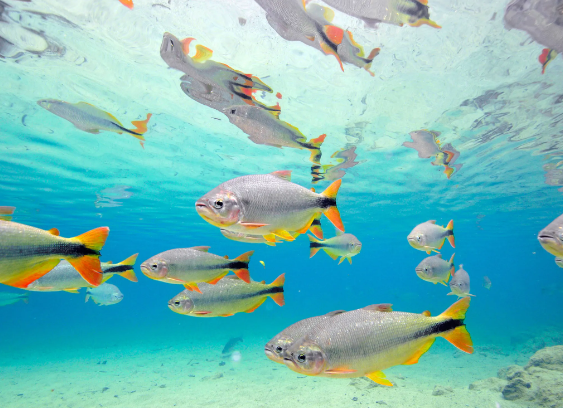The Cleanest Ocean: Exploring Pristine Marine Environments
The world's oceans play a vital role in supporting life on Earth, providing habitat for diverse marine species and contributing to the overall health of the planet. In this article, we will delve into the concept of the cleanest ocean, exploring pristine marine environments and the factors that contribute to their cleanliness.

Cleanest ocean
1. Understanding Ocean Pollution:
- Ocean Pollution Overview: Before exploring the cleanest oceans, it's essential to understand the challenges posed by ocean pollution, including plastic waste, oil spills, and chemical contaminants.
- Impacts of Pollution: Ocean pollution has detrimental effects on marine ecosystems, leading to habitat destruction, species extinction, and water quality degradation.
2. Factors Determining Ocean Cleanliness:
- Proximity to Human Activities: The distance from densely populated areas and industrial activities is a significant factor in determining the cleanliness of an ocean.
- Environmental Regulations: Countries with robust environmental regulations and effective conservation measures tend to have cleaner oceans.
- Geographic Isolation: Oceans surrounded by remote and less inhabited regions are generally cleaner due to reduced human impact.
3. Examining Pristine Marine Environments:
- The Great Barrier Reef, Australia: The Great Barrier Reef is known for its breathtaking coral formations and diverse marine life, benefiting from Australia's efforts to protect and conserve this UNESCO World Heritage Site.
- The Maldives: The Maldives is renowned for its crystal-clear waters, thriving coral reefs, and strict conservation measures, making it a prime example of a pristine ocean environment.
- The Seychelles: The Seychelles archipelago in the Indian Ocean boasts pristine beaches, vibrant coral reefs, and a commitment to sustainable tourism and marine conservation.
4. Success Stories in Ocean Conservation:
- Marine Protected Areas: Establishing marine protected areas, such as the PapahÄnaumokuÄkea Marine National Monument in Hawaii, contributes to preserving the natural integrity of the oceans.
- Community Initiatives: Local communities and organizations play a crucial role in coastal clean-up efforts, such as the Surfrider Foundation's beach cleaning campaigns.
5. Promoting Sustainable Practices:
- Reduce, Reuse, Recycle: Encouraging individuals and industries to adopt sustainable practices, including reducing plastic consumption, reusing materials, and recycling, helps prevent ocean pollution.
- Sustainable Fishing: Implementing sustainable fishing practices, such as regulating catch limits and protecting critical fish habitats, contributes to maintaining clean and healthy oceans.
6. Collaborative Efforts:
- International Cooperation: Governments, organizations, and researchers worldwide collaborate to address global ocean pollution issues through initiatives like the United Nations' Sustainable Development Goal 14: Life Below Water.
- Scientific Research: Scientists conduct studies and gather data to better understand ocean ecosystems, identify pollution sources, and develop effective strategies for ocean conservation.

Clean ocean with fishes
While no ocean is entirely free from pollution, certain regions stand out for their cleaner marine environments. Through international cooperation, environmental regulations, and sustainable practices, we can work together to protect and preserve the oceans, ensuring their cleanliness for future generations. By celebrating success stories in ocean conservation and promoting individual responsibility, we can strive towards a cleaner and healthier marine ecosystem.